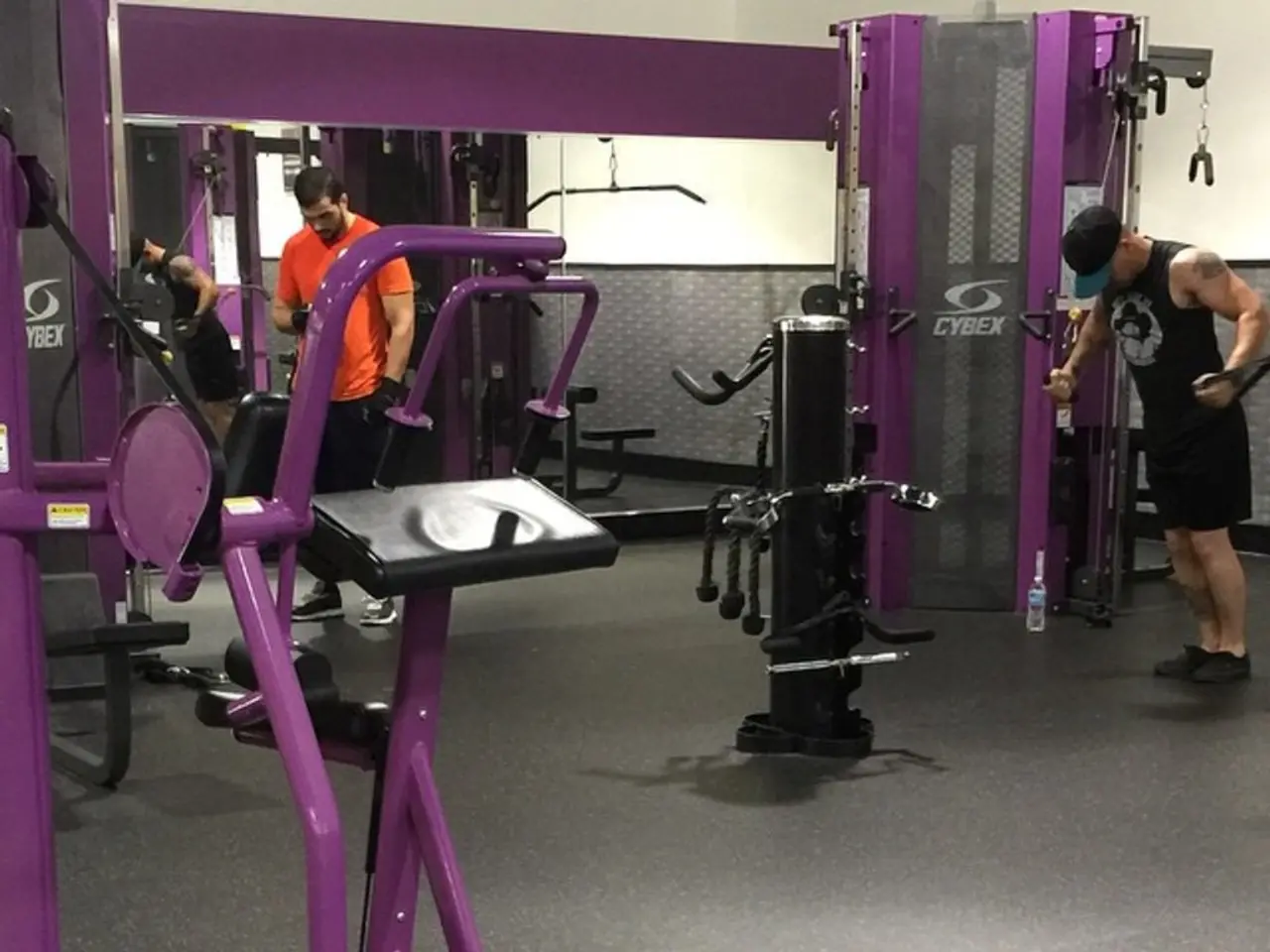Revolutionizing Fitness: The Impact of Intelligent Mirrors on Elite Workouts
In the realm of professional sports and rehabilitation, as well as for everyday fitness enthusiasts, smart mirrors have become an integral part of off-season programming, form review, and even post-injury rehab protocols. These cutting-edge devices offer a unique blend of technology and fitness, transforming the way we approach our workouts.
Smart mirrors are interactive displays that double as full-length mirrors, streaming workouts, tracking movement, analysing performance, and providing live or recorded coaching. They sync with wearables like Apple Watch, Fitbit, and Whoop to provide a more comprehensive health profile.
One of the key advantages of smart mirrors is the privacy and personal space they offer. Users can train without feeling judged or crowded, making high-performance training at home a convenient and comfortable option for elite athletes, busy professionals, parents and caregivers, and aging populations.
Top smart mirror brands include Mirror, Tonal, Tempo, Fiture, Echelon Reflect, VAHA Fitness Mirror, and Magic AI Fitness Smart Mirror, each offering unique features and focus areas. For instance, Echelon Reflect, VAHA Fitness Mirror, and Magic AI Fitness Smart Mirror are leading the home fitness market, emphasising AI coaching, live and on-demand workout sessions, real-time form correction, and integration with wearable devices.
Smart mirrors offer gamification features, such as earning badges, tracking streaks, and participating in challenges, which create a dopamine-reward loop, encouraging adherence and turning workouts into an engaging, habit-forming routine. They also use AI and computer vision to detect human body posture and motion, providing immediate feedback for form correction or effort optimization.
Performance analytics are available on many smart mirrors, offering insights into progress over time such as strength gains, endurance, flexibility, or weight management. Some systems require accessories like resistance bands, dumbbells, or heart rate monitors, but many offer full-body workouts using just bodyweight.
High-performance training can be conducted conveniently at home with smart mirrors, eliminating barriers like structured time, commuting, and expensive memberships. The long-term cost-efficiency of smart mirrors can be significant when compared to annual gym memberships, personal training sessions, commuting costs, and time spent.
Data-driven progression is a key feature of smart mirrors, as they store vast amounts of user data and create individualized workout plans over time. Most companies implementing strict data privacy standards for smart mirrors, but it's important to review each platform's privacy policy and disable cameras if concerned.
Smart mirrors connect users to virtual communities, where they can swap tips, encourage one another, and build camaraderie, which can be just as motivating as a personal trainer's voice. They also allow progress tracking that can be shared with medical professionals, creating a more holistic and transparent care plan.
As the smart fitness mirror market continues to grow, driven by AI and AR integration for personalized workouts, subscription content models, and expanding accessibility as prices moderate from premium tiers toward mid-range products, it is clear that these devices are set to revolutionise the way we approach fitness and rehabilitation.
- Smart mirrors have become essential in sports and rehabilitation, offering a unique blend of technology and fitness for performance training.
- These interactive displays stream workouts, track movement, analyze performance, and provide coaching, syncing with wearables like Apple Watch and Fitbit.
- Smart mirrors offer privacy and personal space for training, making high-performance training at home convenient for athletes, professionals, parents, caregivers, and aging populations.
- Brands like Mirror, Tonal, Tempo, Fiture, Echelon Reflect, VAHA Fitness Mirror, and Magic AI Fitness Smart Mirror lead the market, offering AI coaching, workout sessions, and form correction.
- Gamification features on smart mirrors encourage adherence by creating a dopamine-reward loop, turning workouts into engaging, habit-forming routines.
- Performance analytics on smart mirrors provide insights into progress over time, such as strength gains, endurance, flexibility, or weight management.
- Some smart mirrors require accessories, but many offer full-body workouts using just bodyweight, making it possible to conduct high-intensity interval training (HIIT) and cardio exercises with ease.
- By eliminating barriers like structured time, commuting, and expensive memberships, smart mirrors offer a cost-efficient long-term solution for fitness enthusiasts.
- Smart mirrors store user data and create individualized workout plans, implementing data privacy standards for user protection.
- Connecting users to virtual communities, smart mirrors allow for tip-sharing, encouragement, and camaraderie, while also providing trackable progress for medical professionals.
- As smart mirrors evolve with AI and AR integration, subscription content models, and expanding accessibility, their impact on fitness and rehabilitation is set to grow.
- In health-and-wellness, fitness-and-exercise, education-and-self-development, and personal-growth pursuits, smart mirrors can complement workout routines and muscle-building regimes.
- Future advancements in technology, fitness science, and health-focused gadgets will continue to shape the way we approach wellness, mobilizing our bodies and minds alike.




